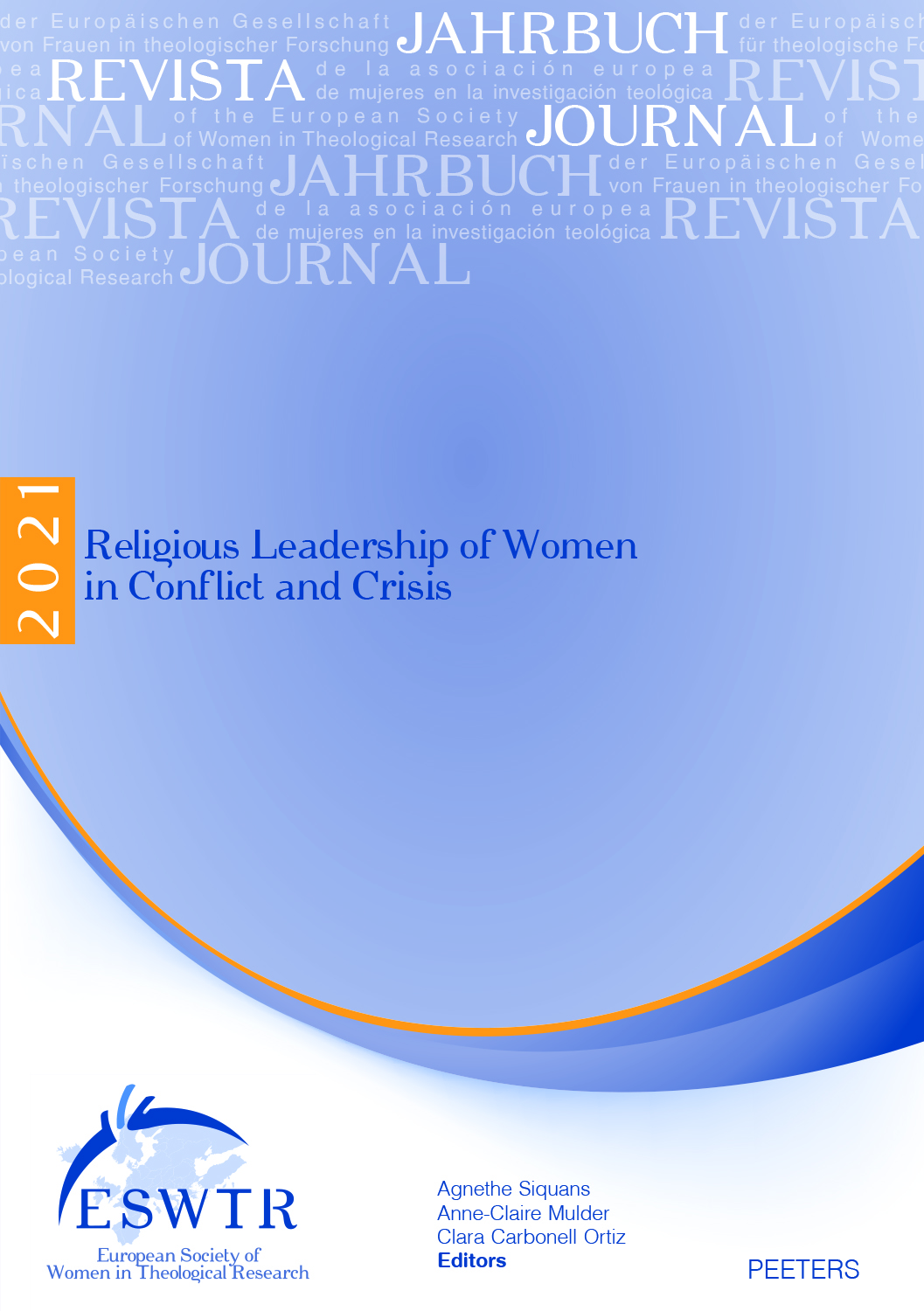 previous article in this issue previous article in this issue | next article in this issue  |

Preview first page |
Document Details : Title: Anti-genderism and Neo-homophobic Discourses on the Horizons of Right-wing Populism and Christian Religious Fundamentalism Subtitle: Warning Signals from Hungary Author(s): PERINTFALVI, Rita Journal: Journal of the European Society of Women in Theological Research Volume: 31 Date: 2023 Pages: 11-28 DOI: 10.2143/ESWTR.31.0.3292277 Abstract : Over a decade ago, anti-genderism as a cultural fight opened a new chapter in political, cultural, and social history in Europe and worldwide. This anti-gender debate emerged relatively late in Hungary, only in 2017, much later than in many other European countries, the reasons for which are briefly analysed in this article. Right-wing populist politics usually lives on producing enemy images against which it can protect the 'people'. Since 2015 the Hungarian government included Soros, migration, gender and LGBTQ+ topics in this enemy-forming narrative. From 2017 onward, they have increasingly turned towards anti-genderism. LGBTQ+ individuals and communities have been targeted by ongoing, aggressive government attacks since 2020. Since these attacks violate EU norms on gender equality and can also lead to other countries adopting the same narratives, they pose a threat to the entire European Union. In the article, three stages will be outlined and analysed regarding the neo-homophobic discourse in Hungary, namely: the changes in the Constitution that took place in 2020; the so-called anti-paedophilia law and the mixing of homosexuality and paedophilia; and the 'child protection' referendum and the associated civil resistance. The latter was an action in a form of civil disobedience and was able to break through the seemingly invincible power of the propaganda machine. This can be seen as a small glimmer of hope for the future. Vor mehr als einem Jahrzehnt eröffnete der Anti-Genderismus als Kulturkampf ein neues Kapitel in der politischen, kulturellen und sozialen Geschichte in Europa und weltweit. Diese Antigender-Debatte tauchte in Ungarn relativ spät auf, erst 2017, viel später als in vielen anderen europäischen Ländern. Die Gründe dafür werden in diesem Artikel kurz analyisert. Die rechtpopulistische Politik lebt normalerweise davon, Feindbilder zu produzieren, gegen die sie die Menschen 'beschützen' kann. Seit 2015 inkludierte die ungarische Regierung Soros, Migation, Gender und LGBTQ+-Themen in dieses feindbildende Narrativ. Ab 2017 wendeten sich diese zunehmend in Richtung Anti-Genderismus. LGBTQ+-Personen und -Gemeinschaften wurden seit 2020 von andauernden, aggressiven Angriffen der Regierung ins Visier genommen. Da diese Angriffe EU-Normen zur Gendergleichstellung verletzen und auch dazu führen können, dass andere Länder dieselben Narrative übernehmen, stellen sie eine Bedrohung für die gesamte Europäische Union dar. In diesem Artikel werden drei Stufen des neo-homophoben Diskurses in Ungarn skizziert und analysiert, nämlich: die Änderungen der Verfassung, die 2020 vorgenommen wurden, das sogenannte Anti-Pädophilie-Gesetz und die Vermischung von Homosexualität und Pädophilie sowie das 'Kinderschutz'-Referendum und den damit verbundenen zivilen Widerstand. Letzterer war eine Aktion in Form von zivilem Ungehorsam und schaffte es, die scheinbar unbesiegbare Macht der Propagandamaschinerie zu durchbrechen. Das kann als kleiner Hoffnungsschimmer für die Zukunft gesehen werden. Hace una década, la ideología antigénero como conflicto cultural abrió un nuevo capítulo en la historia social, cultural y política de Europa y de todo el mundo. El debate antigénero emergió relativamente tarde en Hungría, en el año 2017, bastante tarde en comparación a otros países europeos. Las razones de ello se analizan en este artículo. Los populismos políticos de derechas crecen en la medida en que crean la imagen de un enemigo del que solo ellos son capaces de defender al 'pueblo'. Desde el año 2015, el gobierno húngaro ha incluido a George Soros, la migración, el género y cuestiones LGBTQ+ en esta narrativa de creación del enemigo. Desde 2017, el componente antigénero se ha incrementado, de tal forma que personas y comunidades LGBTQ+ han estado en el punto de mira de los agresivos ataques del gobierno, especialmente desde 2020. Dado que estos ataques violan la normativa europea en materia de igualdad de género y pueden conducir a que otros países adopten narrativas semejantes, suponen una amenaza para toda la Unión Europea. En este artículo, se delinean y analizan tres estadios en relación al discurso neohomofóbico en Hungría, particularmente los cambios en la constitución que tuvieron lugar en 2020; la así llamada ley anti-pedofilia y la confusión que establece entre homosexualidad y pedofilia; y el referéndum de 'protección infantil' y la resistencia civil que levantó. Esta última se plasmó en formas de desobediencia civil y fue capaz de superar la aparentemente invencible maquinaria mediática. Esto representa un pequeño destello de esperanza para el futuro. Fatal error: Uncaught mysqli_sql_exception: Column 'lib_id' cannot be null in /srv/data/web/vhosts/poj.peeters-leuven.be/htdocs/secure/POJ/tracker2.php:212 Stack trace: #0 /srv/data/web/vhosts/poj.peeters-leuven.be/htdocs/secure/POJ/tracker2.php(212): mysqli_query() #1 /srv/data/web/vhosts/poj.peeters-leuven.be/htdocs/article.php(579): track2_page_hit() #2 /srv/data/web/vhosts/poj.peeters-leuven.be/htdocs/content.php(634): include('...') #3 {main} thrown in /srv/data/web/vhosts/poj.peeters-leuven.be/htdocs/secure/POJ/tracker2.php on line 212 |
